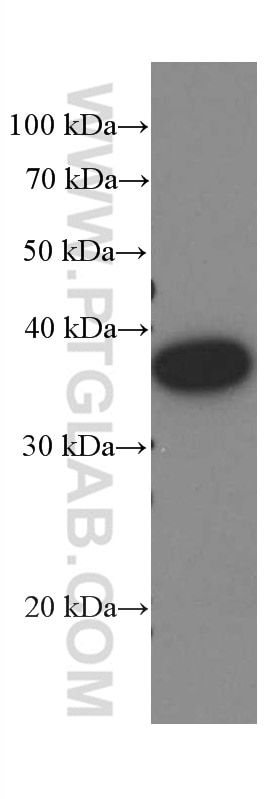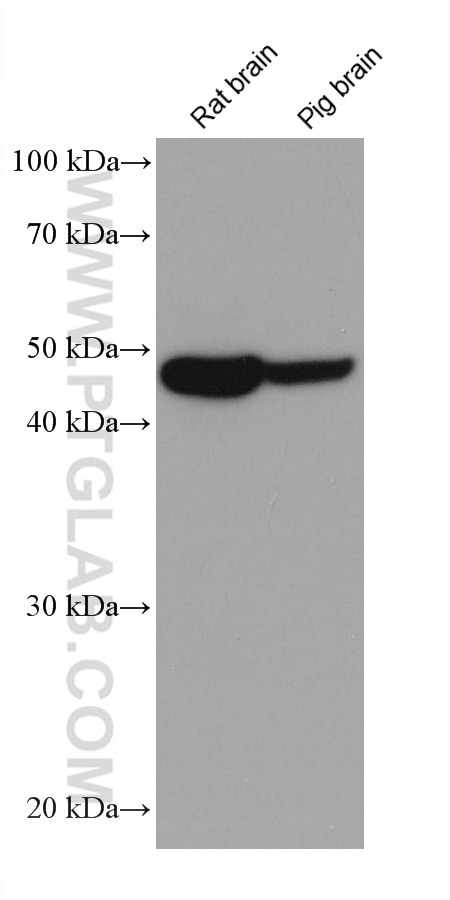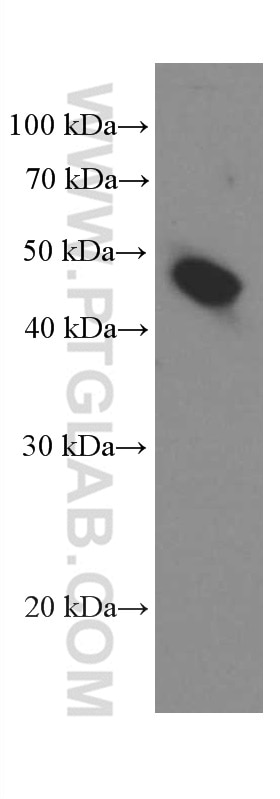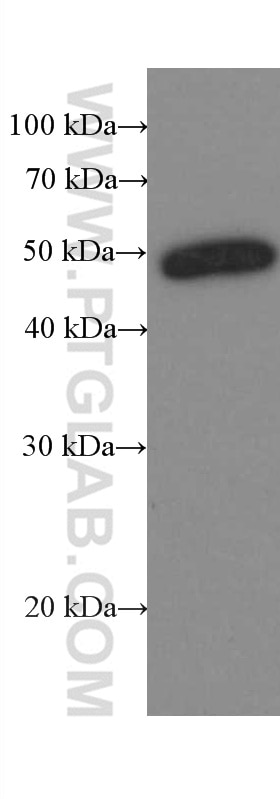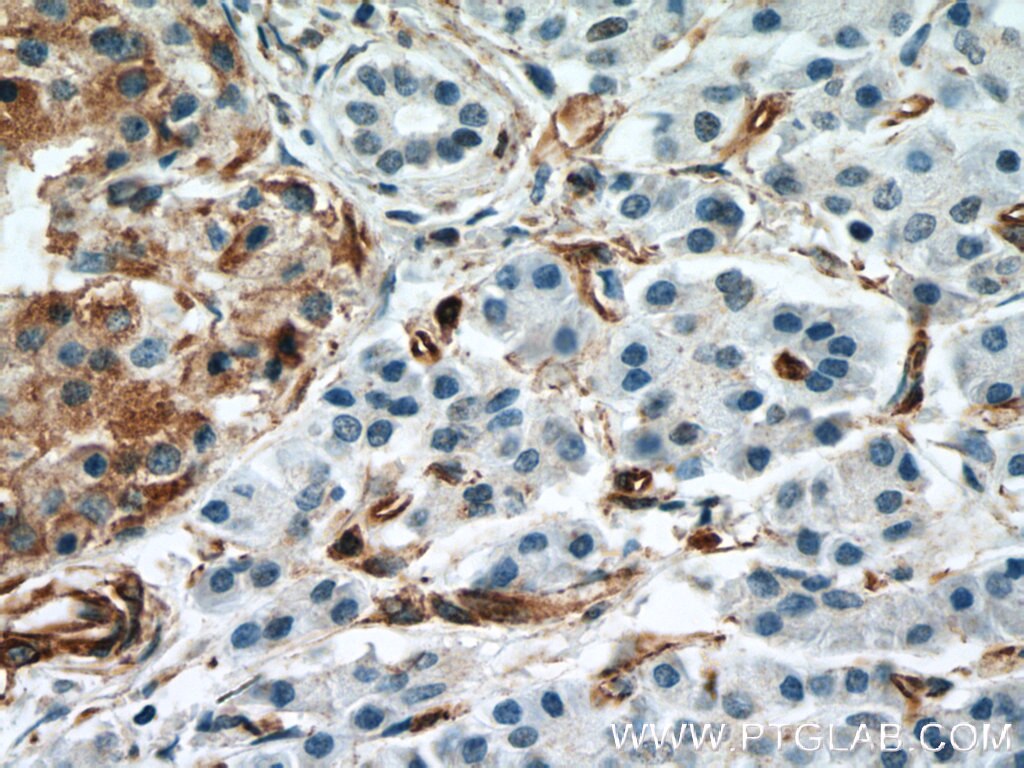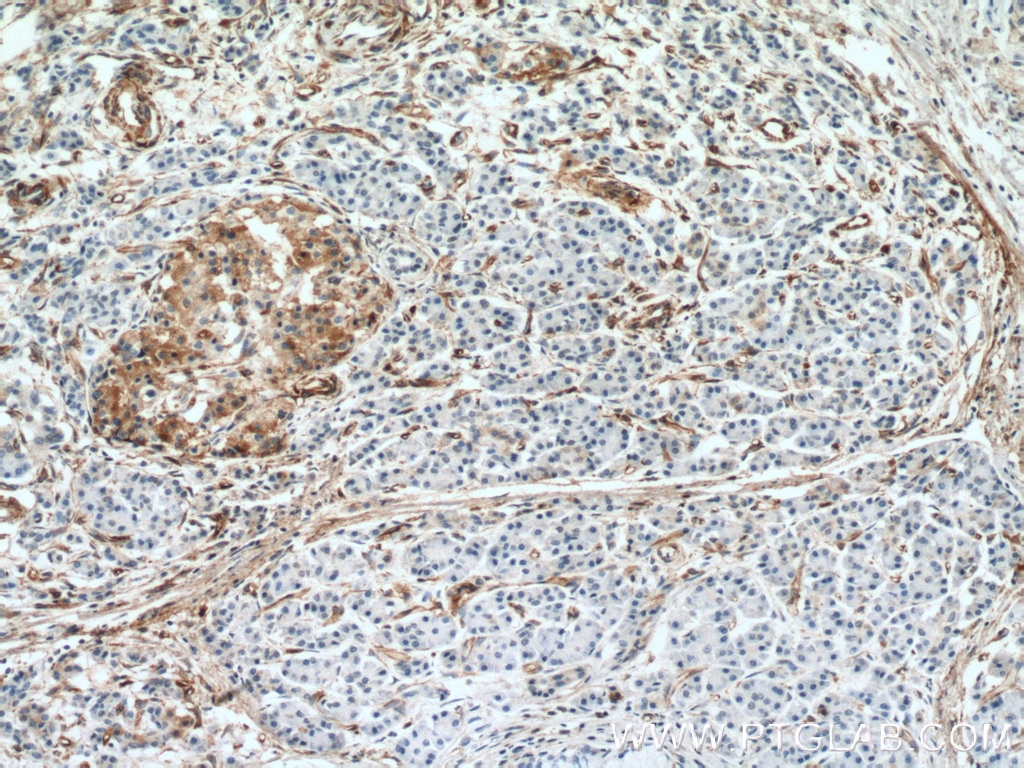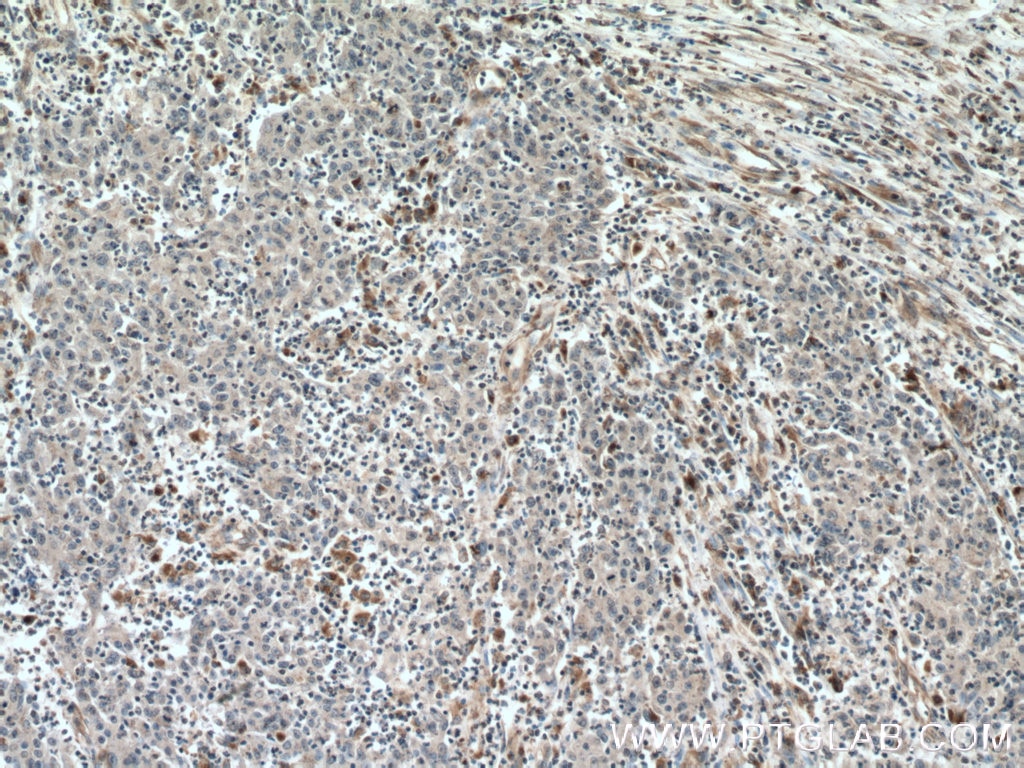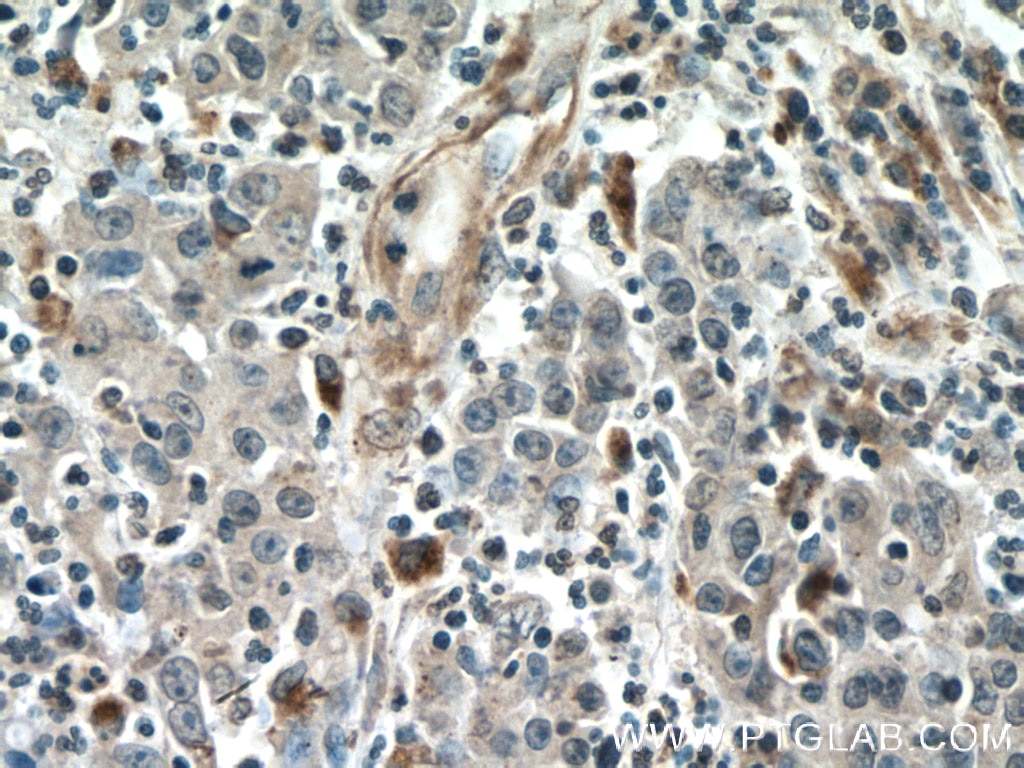Validation Data Gallery
Tested Applications
| Positive WB detected in | A549 cells, rat brain tissue, MCF-7 cells, pig brain tissue |
| Positive IHC detected in | human pancreas cancer tissue, human colon cancer tissue Note: suggested antigen retrieval with TE buffer pH 9.0; (*) Alternatively, antigen retrieval may be performed with citrate buffer pH 6.0 |
Recommended dilution
| Application | Dilution |
|---|---|
| Western Blot (WB) | WB : 1:1000-1:6000 |
| Immunohistochemistry (IHC) | IHC : 1:50-1:500 |
| It is recommended that this reagent should be titrated in each testing system to obtain optimal results. | |
| Sample-dependent, Check data in validation data gallery. | |
Published Applications
| WB | See 2 publications below |
| IHC | See 1 publications below |
| IF | See 1 publications below |
Product Information
66433-1-Ig targets Amphiregulin in WB, IHC, IF, ELISA applications and shows reactivity with human, rat, pig samples.
| Tested Reactivity | human, rat, pig |
| Cited Reactivity | human, mouse |
| Host / Isotype | Mouse / IgG1 |
| Class | Monoclonal |
| Type | Antibody |
| Immunogen | Amphiregulin fusion protein Ag8907 相同性解析による交差性が予測される生物種 |
| Full Name | amphiregulin |
| Calculated molecular weight | 252 aa, 28 kDa |
| Observed molecular weight | 50 kDa, 37 kDa |
| GenBank accession number | BC009799 |
| Gene Symbol | Amphiregulin/AREG |
| Gene ID (NCBI) | 374 |
| RRID | AB_2881803 |
| Conjugate | Unconjugated |
| Form | Liquid |
| Purification Method | Protein A purification |
| UNIPROT ID | P15514 |
| Storage Buffer | PBS with 0.02% sodium azide and 50% glycerol , pH 7.3 |
| Storage Conditions | Store at -20°C. Stable for one year after shipment. Aliquoting is unnecessary for -20oC storage. |
Background Information
Amphiregulin (AREG) is one of the ligands of the epidermal growth factor receptor (EGFR). AREG plays a central role in mammary gland development and branching morphogenesis in organs and is expressed both in physiological and in cancerous tissues. The AREG protein is synthesized as a 252-amino acid transmembrane precursor, pro-AREG. At the plasma membrane, pro-AREG is subjected to sequential proteolytic cleavages within its ectodomain and is then released as the soluble AREG protein. Depending on the cell type and microenvironment, AREG can be produced in multiple cellular and mature forms using alternative pro-AREG cleavage sites and glycosylation motifs. Post-translastional modfications of 50-kDa pro-AREG produces a major soluble 43-kDa form, 28-, 26-, 16-kDa membrane anchored forms, and soluble 21-, 19-, and 9-kDa forms (PMID: 9642297).
Protocols
| Product Specific Protocols | |
|---|---|
| WB protocol for Amphiregulin antibody 66433-1-Ig | Download protocol |
| IHC protocol for Amphiregulin antibody 66433-1-Ig | Download protocol |
| Standard Protocols | |
|---|---|
| Click here to view our Standard Protocols |
Publications
| Species | Application | Title |
|---|---|---|
Cell Rep Med Tumor-associated monocytes promote mesenchymal transformation through EGFR signaling in glioma | ||
J Invest Dermatol LPCAT1 promotes cutaneous squamous cell carcinoma via EGFR-mediated AKT/p38MAPK signaling pathways. | ||
Int J Biol Sci CD9 regulates keratinocyte migration by negatively modulating the sheddase activity of ADAM17. | ||
Nat Commun A single cell atlas of frozen shoulder capsule identifies features associated with inflammatory fibrosis resolution | ||
Cell Death Dis TLR9 activation in large wound induces tissue repair and hair follicle regeneration via γδT cells | ||
Cells AREG Upregulation in Cancer Cells via Direct Interaction with Cancer-Associated Fibroblasts Promotes Esophageal Squamous Cell Carcinoma Progression Through EGFR-Erk/p38 MAPK Signaling |
